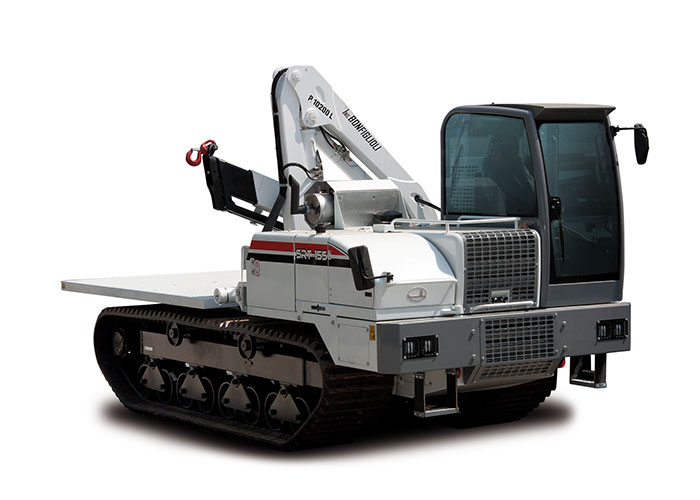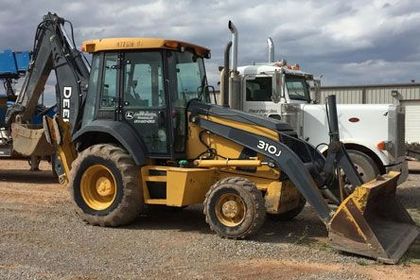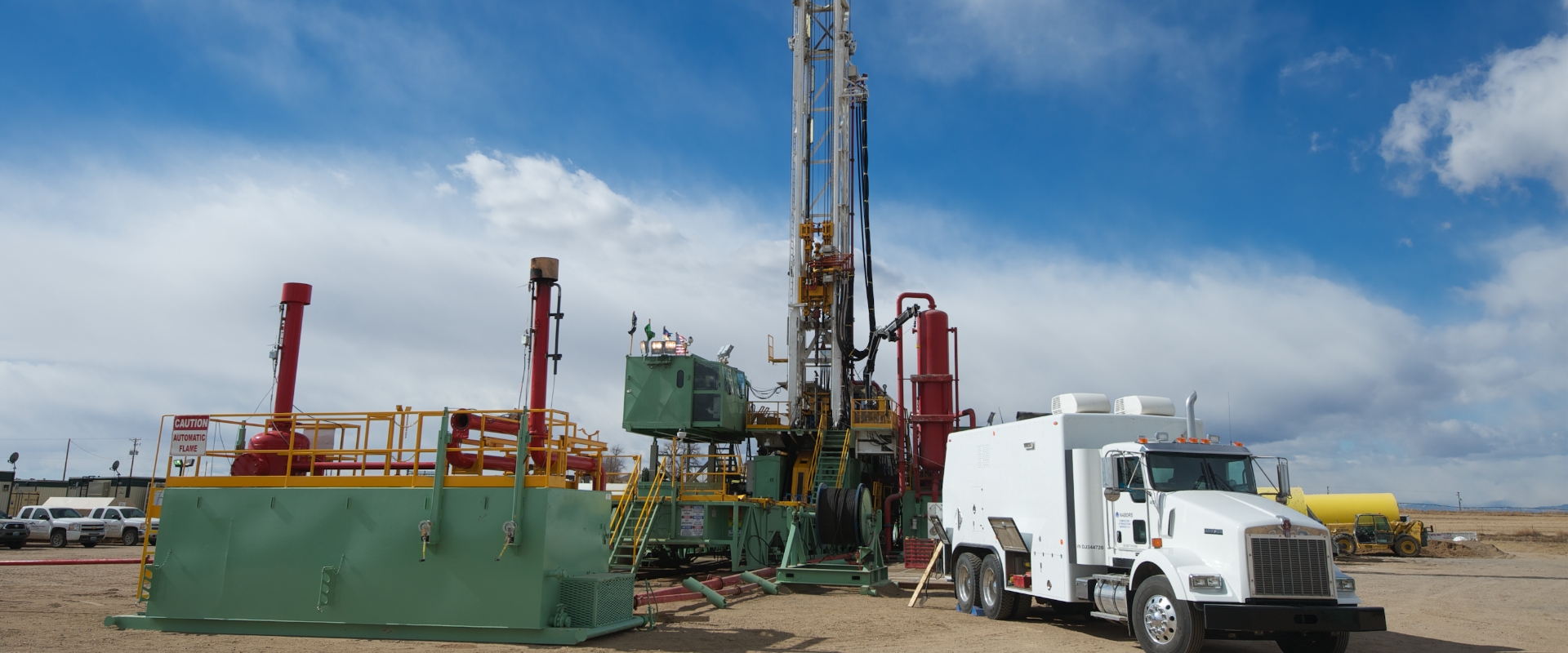Superior Rentals fusion machines: a complete guide for pipeline welding
Wiki Article
A Comprehensive Guide to the Numerous Kinds Of Oil Field Equipment and Pipeline Equipment Available
The oil and gas market counts heavily on customized devices for efficient removal and transportation. Different kinds of equipment, from piercing rigs to storage space containers, play vital duties in this complex procedure. Each tool serves unique features that add to total functional success. Recognizing these parts is crucial for anybody associated with the field. As the industry develops, so as well do the modern technologies that sustain it. What developments are on the perspective?
Drilling Rigs: The Foundation of Oil Expedition
Drilling rigs function as the necessary equipment in the domain name of oil expedition, enabling firms to accessibility hydrocarbon gets buried deep beneath the Earth's surface. These rigs can be found in different kinds, consisting of land rigs, offshore rigs, and mobile devices, each made to run in certain environments. Equipped with innovative innovation, drilling rigs can pass through geological formations with accuracy, ensuring efficient source extraction. The architectural honesty and functional capabilities of these rigs are critical, as they have to hold up against severe problems and substantial stress. The option of an exploration gear impacts the general job price and timeline, making it a crucial factor to consider for oil companies seeking to enhance their expedition efforts and take full advantage of productivity in their procedures.Pumps: Necessary for Fluid Activity
In the oil removal procedure, the function of pumps is considerable, helping with the motion of fluids throughout different phases of production. Pumps are crucial for delivering crude oil, water, and various other liquids from below ground reservoirs to the surface and afterwards via pipelines to refineries. They can be found in numerous kinds, consisting of centrifugal, favorable variation, and submersible pumps, each offering specific objectives based on the fluid attributes and operational needs. Centrifugal pumps are commonly used for their effectiveness in high-flow applications, while positive variation pumps master dealing with thick liquids. The selection of pump influences general effectiveness, functional security, and maintenance expenses. Appropriate option and maintenance of pumps are vital for optimizing manufacturing and decreasing downtime in oil field procedures.Valves: Controlling Circulation and Pressure

Shutoffs play an important duty in taking care of the flow and stress of liquids within oil areas and pipelines. Different kinds of valves offer unique applications, each designed to accomplish details functions essential for reliable operation - Superior Oilfield Rentals. Comprehending the attributes and uses of these valves is important for maximizing system performance and safety and security
Kinds of Valves
Essential components in oil area operations, shutoffs play a crucial role in controlling the circulation and stress of liquids within pipes and devices. Various kinds of valves are made use of to meet the varied needs of oil and gas production. Typical kinds include gate valves, which supply a straight-line circulation and minimal pressure decrease; world valves, known for their throttling capacities; and ball shutoffs, recognized for their quick on/off control. Additionally, check valves stop backflow, while butterfly shutoffs provide a lightweight option for regulating circulation. Each shutoff type is created with certain products and setups to withstand the rough problems typically found in oil fields, making certain reliability and efficiency in operations. Recognizing these types is critical for reliable system management.Valve Applications and Functions
While different kinds of valves serve unique functions, their key applications rotate around controlling circulation and pressure within oil and gas systems. Valves such as gate, world, and round shutoffs control liquid motion, guaranteeing peak efficiency and safety. Gateway valves are frequently utilized for on/off control, providing minimal circulation resistance. Globe valves, on the other hand, deal accurate circulation guideline, making them suitable for strangling applications. Round valves are favored for their fast operation and limited sealing capacities. Additionally, pressure safety valve are critical for avoiding system overpressure, safeguarding equipment stability. Generally, the proper selection and application of shutoffs improve functional performance, making certain the trusted transport of oil and gas with pipes and handling centers.Compressors: Enhancing Gas Transportation
Compressors play a crucial role in the efficient transportation of all-natural gas, making sure that it relocates efficiently through pipes over lengthy distances. These devices enhance the pressure of gas, enabling it to get rid of friction and elevation modifications within the pipeline system. Furthermore, compressors help with the harmonizing of supply and need, fitting variations in consumption and manufacturing prices. Various kinds click here to find out more of compressors are used in the market, consisting of centrifugal, reciprocating, and rotating screw compressors, each offering distinct advantages based on the operational needs. Regular maintenance of these compressors is important to make best use of effectiveness and reduce downtime, inevitably adding to a trusted gas transportation replacing water pipes in house network. Their critical function highlights the relevance of compressors in the general oil and gas framework.Storage Tanks: Safe and Efficient Fluid Monitoring
Effective transport of natural gas counts on different support group, among which is the correct management of tank. These storage tanks play an essential duty in securely containing liquids, guaranteeing that operational effectiveness is kept while reducing environmental dangers. Constructed from long lasting materials, they are designed to endure high stress and harsh aspects. Appropriately sized and purposefully located, tank promote the smooth circulation of natural gas and various other fluids, preventing bottlenecks in supply chains. Regular maintenance and surveillance are critical to detect leakages or architectural concerns, advertising safety and security and compliance with governing criteria. Inevitably, the effective monitoring of storage space tanks is essential for the total integrity and reliability of the oil and gas industry's fluid handling systems.
Pipeline Equipments: Infrastructure for Transportation
Pipeline systems act as the backbone of the oil and gas industry, assisting in the reliable transport of hydrocarbons over large distances. These systems contain various components, consisting of pipes, shutoffs, pumps, and compressors, all carefully developed to ensure seamless circulation. The products used in pipeline construction, commonly steel or high-density polyethylene, are chosen for durability and resistance to rust. Pipeline networks can span throughout land and water, attaching manufacturing websites to refineries and circulation. Furthermore, advanced modern technology makes it possible for real-time tracking of circulation rates and pressure degrees, boosting functional efficiency. The critical positioning of these pipelines minimizes environmental impact while optimizing source availability, thus playing a necessary duty in meeting power needs worldwide.Safety And Security Equipment: Ensuring Employee and Environmental Defense
The procedure of pipeline systems, while important for power transport, additionally provides considerable security obstacles for employees and the setting. Safety and security equipment plays a significant duty in minimizing these threats. Personal protective tools (PPE) such as safety helmets, gloves, and non-slip footwear safeguards employees from physical risks. Furthermore, gas detection systems monitor for leakages, ensuring that damaging materials do not position a risk to personnel or the bordering environment. Emergency shutdown systems are essential for click here for more info quickly stopping procedures throughout a crisis, protecting against possible catastrophes. Spill control materials, including absorbents and barriers, are basic for decreasing ecological impact. Generally, purchasing comprehensive security devices is vital for preserving operational integrity and safeguarding both workers and the setting in the oil and gas market.
Regularly Asked Concerns
Exactly how Do I Select the Right Oil Field Equipment for My Task?
Selecting the ideal oil field equipment includes assessing project requirements, budget restrictions, and operational needs. Take into consideration variables such as tools integrity, compatibility with existing systems, and the provider's online reputation to ensure peak performance and security.What Are the Maintenance Requirements for Oil Field Equipment?
Maintenance demands for oil area equipment consist of regular examinations, lubrication, and timely fixings. Operators must additionally follow supplier guidelines, display efficiency metrics, and warranty compliance with security regulations to improve durability and effectiveness.
Exactly How Can I Guarantee Compliance With Environmental Regulations?
To guarantee compliance with environmental policies, companies should conduct regular audits, implement finest practices, purchase training, keep proper paperwork, and remain updated on regulations (Superior Oilfield Rentals Texas). Collaboration with ecological companies can also enhance adherence to lawsWhat Is the Average Lifespan of Pipeline Equipment?
The typical lifespan of pipeline devices usually ranges from 20 to half a century, depending on factors such as worldly high quality, environmental conditions, and upkeep practices. Regular inspections can greatly affect longevity and operational performance.Just how Do I Safely Carry Oil Field Equipment to Remote Locations?
Transporting oil field devices to remote places requires mindful planning, consisting of course assessment, protecting authorizations, utilizing suitable vehicles, and guaranteeing safety and security methods are followed. Proper training and interaction among staffs are crucial for effective transportation.Report this wiki page